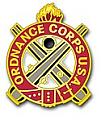We all know that but even the Forces occasionally succumb to the siren lure of 'process.' Seemingly forgetting every few years that form over function is antithetical to success in combat.
We can disagree on that. I think the process of producing the document and compiling and annotating and filing the references to include detailed cites is adequate. Seems to me your approach would add to costs with no tangible benefit to the doctrinal producer. Admittedly, such an approach would be an asset to scholars but I submit that's an ancillary effect not justifying the expense of tax dollars -- or effort on the part of the developers..
Why do you think Ken mentioned those two? You may not have known or may have forgotten to add that "their ideas" were rolled back into military training (and not just in the US) with poor modifications in the 70s and 80s, much to the detriment of said training. Great detriment......First, when Ken mentioned Taylor, I really had to laugh since Taylor actually took many of his ideas, filtered 3rd and 4th hand (without citations), from the beginnings of modern warfare going back to William the Silent and Maurice of Nassau. Second, Demming actually got a lot of his ideas from Mao via, in part, the 1st Marine Raider BTN...
Much 'modern' management theory actually was developed in the US in the 1940-45 time frame by the armed forces and industry for the worldwide conduct of the war. After the war, industry continued to adapt it and then some of the civilian Educational Specialists hired by DoD and the services reinvented the wheel by 'introducing' these techniques in the service schools in the 70s -- not realizing that many of the precepts had been modified to maximize profit and lessen costs. Need in industry, dangerous in combat. Thus the Armed forces of the US began to teach what to think instead of how to think.
With the note that SWC is an informal 'QC' of sorts -- and thus works simply because it has not been institutionalized, we again disagree. That too has been done with almost ludicrous effects; I've seen it attempted in the training institutions and on high level staffs. The effort has merit where widgets are made and a tax write off can occur if they are improperly assembled -- it has less merit where unnecessary deaths can recur from cockamamie ideas. That doesn't even address the problem of convincing a crusty flag officer that a group of lesser mortals has determined his idea in not sound......The idea of using quality control circles, or some modern variant of them, is actually not too bad. In some ways, the SWC is just a giant quality control circle, as are many of the informal communications networks that exist.
The second point is not trues in all cases, in those where it is, it needs to be corrected; no question the services are too heirarchical in many respects. However, the first is the real problem.
Fortunately, the experimentation with Deming et.al, QC and such like seems to have run its faddish course. Before QC we had Organizational Development (O.D) and then Organizational Effectiveness (O.E.). My fear was that the next step would be O.F. -- organizational failure -- and we almost achieved that.









 ).
).






Bookmarks